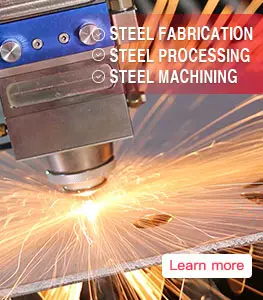Welcome to BBN Steel Materials Factory
42CrMo round bar alloy steel plate

The chemical composition of 42CrMo steel is as follows:
- Carbon: 0.38% - 0.45%
- Silicon: 0.17% - 0.37%
- Manganese: 0.50% - 0.80%
- Chromium: 0.90% - 1.20%
- Molybdenum: 0.15% - 0.25%
- Phosphorus: ≤0.035%
- Sulfur: ≤0.035%
The addition of chromium and molybdenum to the steel improves its hardenability, high-temperature strength, and resistance to wear and corrosion. This makes 42CrMo steel ideal for high-stress applications such as bolts, nuts, and shafts that require high strength and toughness.
GB/T 3077 42CrMo alloy steel can be heat-treated to achieve different mechanical properties. The most common heat treatment process for 42CrMo steel is quenching and tempering. This involves heating the steel to a high temperature and then rapidly cooling it in a quenching medium such as oil or water to harden it. The steel is then reheated to a lower temperature and held for a specific time to temper it, which reduces its hardness but improves its toughness and ductility.
The mechanical properties of 42CrMo steel after quenching and tempering vary depending on the heat treatment parameters. Generally, the steel has a high strength, hardness, and fatigue strength, with a tensile strength of 1080 - 1230 MPa, a yield strength of 930 - 1080 MPa, and a Rockwell hardness of 22 - 28 HRC. The steel also has good toughness and impact resistance at low temperatures.
42CrMo steel is available in various forms such as round bars, flat bars, plates, and forgings. Round bars are the most commonly used form for manufacturing mechanical components due to their ease of machining and availability in standard sizes. 42CrMo round bars are typically supplied in diameters ranging from 10mm to 300mm, with lengths up to 6 meters.
42CrMo alloy round bars are commonly used in the manufacture of high-strength fasteners, bolts, and nuts, as well as gears, shafts, and other mechanical components that require high strength and toughness. The round bars can be machined using conventional methods such as turning, milling, and drilling. The machining parameters such as cutting speed, feed rate, and depth of cut should be optimized to avoid overheating and tool wear.
In addition to machining, 42CrMo alloy round bars can also be subjected to various surface treatments such as blackening, electroplating, and polishing to improve their appearance and corrosion resistance. Blackening involves treating the surface of the steel with a chemical solution to create a black oxide layer that provides mild corrosion resistance and an aesthetic appeal. Electroplating involves depositing a thin layer of metal such as zinc or nickel onto the surface of the steel to improve its corrosion resistance. Polishing involves grinding and buffing the surface of the steel to create a smooth and shiny finish.
.webp)
.webp)
.webp)
.webp)
.webp)
.webp)
.webp)
.webp)
.webp)



Leave a Message